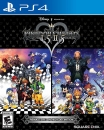Tbh even without a price cut for the Switch 1 I still think it'll have stronger post-successor legs than the DS. I'm predicting the Switch 2 to launch at 400$, so even if the OG Switch doesn't get a price cut you could still buy an OG Switch for 100$ less, for a good portion of people that may be the better option as a cheap way to get into the Switch ecosystem. Plus the Switch Lite will be half of the Switch 2's price, while the Switch Lite isn't anywhere near as popular as a regular Switch it could still have solid sales over the next few years as a very cheap alternative.
Compared to the DS, the DSI Xl was only 20$ cheaper than the 3DS once the 3DS quickly got its price cut after launch, anyone with half a brain cell would've rather just spent the extra 20$ for a much more superior system that plays both new 3DS games and old DS games, the price gap likely won't be as small between the Switch 2 & Switch 1. The DS Lite existed for 100$ at the time, but again the price gap wasn't as large as what we may see between the Switch 1 & Switch 2.
However, there also may be a good possibility that Nintendo may limit production of the OG Switch consoles in favor to produce and/or sell more Switch 2 systems. Once Switch 2 releases, clearly Nintendo would much rather push people towards Switch 2 to sell consumers new games and even older Switch 1 games. Like Soundwave said, I fully expect the Switch Lite to stick around for several years as the very budget friendly console, kinda like how the 2DS was to the Switch. Tbh tho I could see the OG Switch getting phased out though and Nintendo may just sell the Oled to encourage people to spend only 50$ more for the Switch 2, and to at least offer an Oled Switch for those who want it if the Switch 2 ends up just going for an LCD display like rumors are suggesting.
A potential good comparision for the Switch's post-successor sales may be the GBA. The GBA was widely successful and the DS launched at 150$ with GBA backwards combatibility while the GBA was 80$ at the time. Despite the DS looking like the far better device with it of course being far more powerful,innovative touch screen, and the ability to play DS & GBA games, the GBA still was selling impressively well even though the DS was already out and it being only 70$ more expensive.
The GBA sold around 7 Million Units between April 2005-March 2006, and an impressive 15 Million between Arpil 2004-March 2005.
Switch 1 may be able to do similar numbers if it's between 100-200$ cheaper than Switch 2.
It's good to take into context tho that the GBA was only 4 years old when the DS finished it's first year, Switch 1 will be around 8 years old which means that the GBA was far less likely to reach saturation than the Switch 1 at its 8th year, so we need to keep that in mind as well.
Gonna be interesting to see how it plays out.
Existing User Log In
New User Registration
Register for a free account to gain full access to the VGChartz Network and join our thriving community.















































